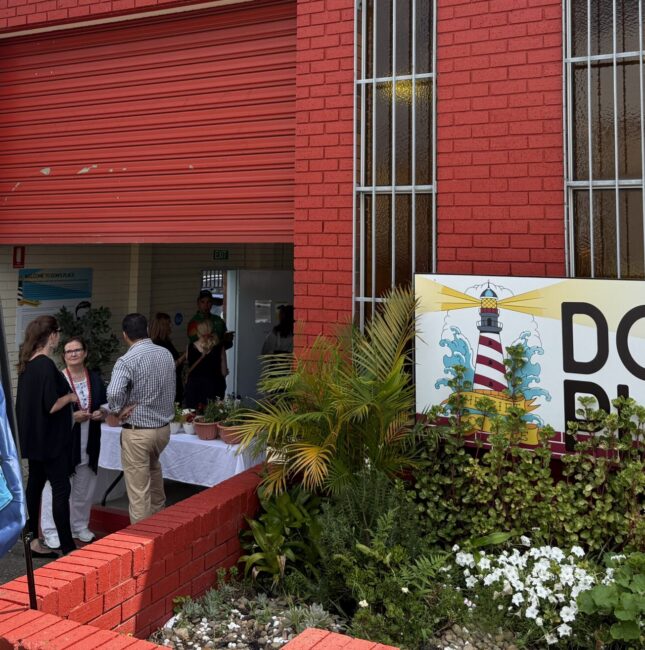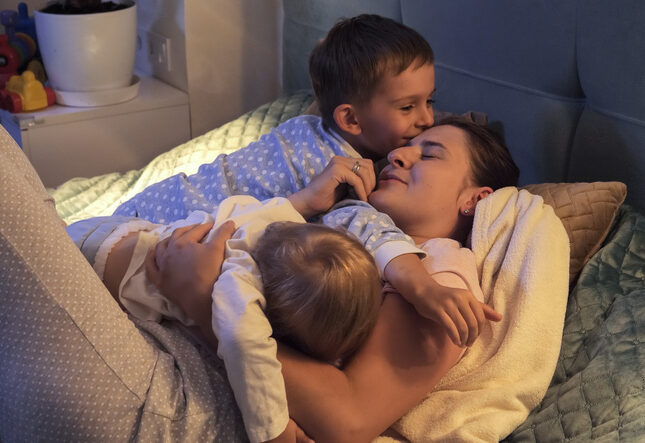Clients with disability supported to speak up
June 22, 2023
Every Friday, Nicola leaves work smiling. After developing the mindfulness and movement program in 2020, her goal was to fill the gap in mental health support for people living with a disability. “It has filled me with immense joy seeing how well the program has been received,” Nicola says. “Clients have come out of their shell and now feel comfortable talking about vulnerable topics.”
Soon after Nicola started working in the disability sector, she became aware of the misconception that people with a disability don’t struggle with mental health issues. “I am very passionate about wanting to close the gap in mental health support and to do what I can to ensure CatholicCare provides an environment where clients feel heard. This led me to create the mindfulness and movement program which runs every Friday.”
With consistency and routine being paramount for the clients, the program runs on the same time schedule every week. “I intentionally leave 9.00 – 9.30am free so the clients can talk amongst themselves as building these friendships is pivotal for social health,” says Nicola. “At 9.30am the clients take turns to choose an emotion card that reflects how they are feeling. The emotion cards contain emojis with different facial expressions. Once they have chosen their cards, they expand on these feelings to the group. If a client picks the sad emotion card, I will always ask them, “Would you like to talk about it with the group? Or with me privately later?”
At 10.30am Nicola runs the ‘gratefulness activity’. Like the previous activity, the clients sit in a circle and take turns sharing two things they are grateful for this week. “This encourages them to think outwardly and be appreciative of all the little things people do for them,” Nicola says. The format for the rest of the day is weather dependent, but may include a BBQ, sporting games at the park, mindfulness colouring in, meditation or yoga. “At the end of the day we always finish with Just Dance,” Nicola says. “This is an opportunity for exercise where they copy the dance movements on the big screen.”
The programming is driven by research that emotional regulation is key in managing stress and dealing with challenging obstacles. “To be able to name how they are feeling and extend on this is incredibly empowering for the clients and equips them with valuable skills,” Nicola says. Her goal was to create a space that was safe and comfortable, and to foster relationships where clients could confide in each other if they needed support. “I role model appropriate language and responses to clients in the hope that they may copy this,” Nicola says.
Two years into the program, it is now normal for the clients to be vulnerable and ask for help. “I’ve noticed that the way the clients interact with each other is significantly kinder and more thoughtful,” Nicola says. “I often hear them using the world ‘grateful’ in everyday conversation, thanking each other for doing something kind.”
In the disability industry where many clients feel unheard, this program provides a welcomed platform for clients to speak up. Often, clients will tell Nicola how special it makes them feel to be heard and understood. “All clients, even those who are non-verbal, can communicate their feelings,” Nicola says, “They just need to be given the opportunity.”
More news stories like this one
70 coffees for one great cause – Dom’s Place!
Eight Dom’s Place visitors recently completed barista training but the coffee cart isn’t just about serving coffee - it’s a practical way for them to develop pre-employment skills while contributing to the community.
Read MoreA brighter future for three sisters
Find out how Family Connect & Support can assist students like Kristen who juggle exams and caring for siblings amid challenges.
Read MoreThinking outside-the-box to house families in crisis
Housing a family in crisis presents many challenges. Read how two families in Sydney cope after escaping domestic violence.
Read More


